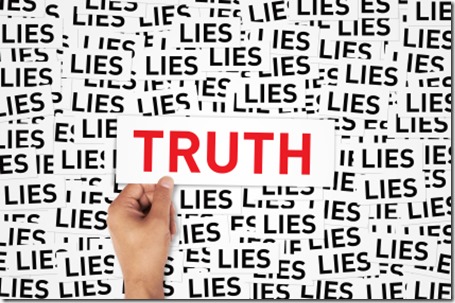To Be Perfectly Honest, You’re Probably Dishonest
“Don’t take this the wrong way.”
“I am only telling you this because I love you.”
“I’m just saying.”
“To be perfectly honest.”
When you hear those phrases—known as “tee-ups”—you’re probably about to hear some unwelcome news. Pay attention when you hear someone utter one. The person using it may be insincere if not downright dishonest.
A fascinating article by the Wall Street Journal’s Elizabeth Bernstein this week looked at research into those types of hedged expressions—and what she found didn’t look too kindly on people who use them.
“’Politeness is another word for deception,’ says James W. Pennebaker, chair of the psychology department of the University of Texas at Austin, who studies these phrases. ‘The point is to formalize social relations so you don’t have to reveal your true self.’
In other words, ‘if you’re going to lie, it’s a good way to do it—because you’re not really lying. So it softens the blow,’ Dr. Pennebaker says.
Of course, it’s generally best not to lie, Dr. Pennebaker notes. But because these sayings so frequently signal untruth, they can be confusing even when used in a neutral context.”
Why do people use tee-ups—and what should you do if you feel one coming on?
“People do this hedging—whether in writing or in speech—largely unconsciously, Dr. Pennebaker says. ‘We are emotionally distancing ourselves from our statement, without even knowing it,’ he says.
So, if tee-ups are damaging our relationships, yet we often don’t even know we’re using them, what can we do? Start by trying to be more aware of what you are saying. Tee-ups should serve as yellow lights. If you are about to utter one, slow down. Proceed with caution. Think about what you are about to say.”
You should read Ms. Bernstein’s full article if you think you might be guilty of using these types of phrases. I’m only telling you this because I love you.
Don’t miss a thing! Click here to instantly join our mailing list and receive free our media training and public speaking tips.




Some tee-ups give the listener an opportunity for the listener to prepare or brace oneself, and they also help the speaker not come off as an unfeeling, uncaring person. The evil of the tee-up lies in the specific version, not all.